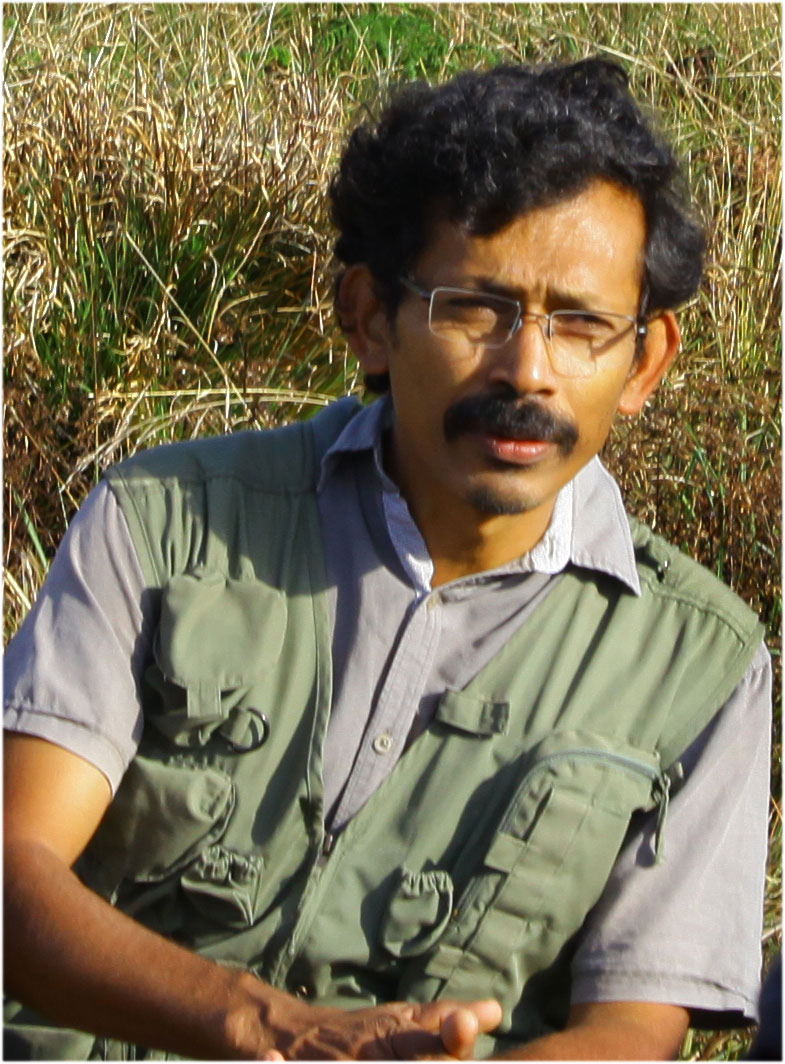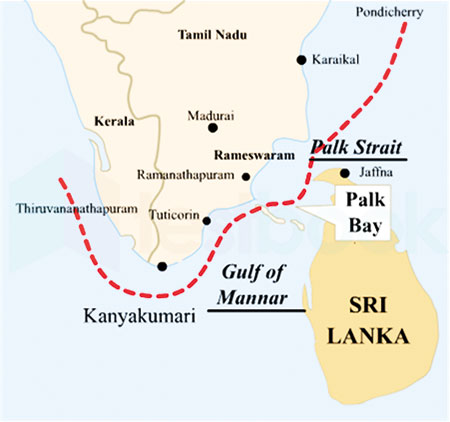Features
Contradictions by Canada on ‘genocide’ in Sri Lanka

by Neville Ladduwahetty
A frontpage headline in the Daily Mirror of June 16, 2023 said: “Canada informs SL that NO GENOCIDE TOOK PLACE IN SL”. Two other sub headers state: “Canada’s Foreign Ministry informs SL that no finding on genocide in Sri Lanka” and “However, the Canadian PM renewed the narrative of genocide on May 18, 2023”. Continuing the report states: “In what appeared to be a clash of narratives among Canada’s leaders, Canada’s Foreign Affairs Ministry has informed the Sri Lankan government that Canada had not made any finding that genocide had taken place in Sri Lanka, the Daily Mirror learns”.
If what has been reported is correct, the narrative of Canada’s Foreign Affairs Ministry contradicts the position taken by the Canadian Prime Minister Justin Trudeau, who, while making a statement commemorating the 14th anniversary of the end of the civil conflict in Sri Lanka, justified the unanimous adoption one year ago by the Canadian Parliament of a motion to make May 18 Tamil Genocide Remembrance Day.
Given the Canadian Foreign Affairs Ministry statement that “Canada has not made any finding that genocide had taken place in Sri Lanka”, it is beyond comprehension for any government of Canada, which proudly calls itself part of the First World, for its Foreign Affairs Ministry and for its Prime Minister to take such vastly divergent views in respect of charges of genocide in another sovereign country such as Sri Lanka. Such contradictions reflect not only the poor state of governance in Canada but also its scant respect for a sovereign country and its Peoples’ sensibilities. How should Sri Lanka handle such contradictions?
SRI LANKA’S RESPONSE
Whether the contradiction between Canada’s Foreign Affairs Ministry and its Prime Minister is fact, misreport or fiction, the response from Sri Lanka’s Foreign Ministry to Canadian PM’s statement was to state: “Such irresponsible and polarising pronouncements by the leader of a nation breeds disharmony and hatred in Canada and Sri Lanka, instead of promoting peace and reconciliation”. The statement continues to vehemently reject the “unsubstantiated narrative of genocide which has been deliberately construed by politically motivated anti-Sri Lanka elements, whose so-called recognition in Canada depends on spreading misinformation and a false narrative of hatred” (Daily FT, May 23, 2023).
The above response is directed only in respect of the comments by Canada’s Prime Minister. The response does not address the motion by Canada’s 338 Member Parliament which states: “this House acknowledges the Genocide of Tamils in Sri Lanka, and recognizes May 18th of each year as Tamil Genocide Remembrance Day”. The House of Commons unanimously accepted the motion”.
What is of deep regret is that although Sri Lanka’s Foreign Ministry was aware that a motion to declare May 18th as a “Tamil Genocide Remembrance Day” was work in progress long before the motion was passed unanimously by Canada’s Parliament, not enough was done to counter the “unanimous efforts” of the Canadian Parliament. For the SL Foreign Ministry to claim that its representative in Canada failed to present material evidence to convince even a few of a 338 Member Parliament to prevent the unanimous support for an “unsubstantiated narrative of genocide”, is unbelievable.
If the entire Canadian Parliament believes that there was genocide in Sri Lanka, should not such a charge be “vehemently rejected” via a unanimous decision of Sri Lanka’s Parliament, bearing in mind that anyone who opposes or abstains would by their action be endorsing the Canadian Parliament’s motion? Regardless of the outcome of such a resolution, the fact remains that it is appropriate that a claim, however indefensible by ONE Parliament (in this case Canada), should be countered by none other than by The OTHER Parliament (in this case, Sri Lanka) for the sake of parity of member states and the dignity of the nation, and NOT by the Foreign Ministry. Furthermore, in this case, it is only a Parliamentary Resolution in Sri Lanka itself that could prevent Tamil pocket boroughs in other countries from adopting similar motions.
WHAT IS AT STAKE
What is at stake is the inability of Sri Lanka’s Foreign Ministry to hold the LTTE that represented the Tamil community responsible for endangering the security of the Tamil civilian population by holding them hostage and using them as a human shield during the final stages of the armed conflict. This stems from the refusal of successive Sri Lankan Foreign Ministries to acknowledge that the armed conflict in Sri Lanka was a Non-International Armed Conflict and the applicable law is International Humanitarian Law as codified in “Protocol Additional to the Geneva Conventions …relating to the Protection of Victims of Non-International Armed Conflict”. The explanation offered by the SL Foreign Ministry for not categorizing the conflict as an armed conflict is because of the lame fact that the Sri Lankan Government has not ratified the Additional Protocol II of 1977; a position that ignores the relevance of provisions contained in Customary Law relating to Non-International Armed Conflict.
What is at stake is the contrasting position taken by the Office of the High Commissioner for Human Rights that Article 3 common to all Geneva Conventions is applicable to the armed conflict that took place in Sri Lanka. For instance:
Paragraph 182 of the above Report states: “Article 3 common to the four Geneva Conventions relating to conflicts not of an international character is applicable to the situation in Sri Lanka, with all parties to the conflict being bound to respect the guarantees pertaining to the treatment of civilians and persons hors de combat contained therein. Common article 3 binds all parties to the conflict to respect as a minimum, that persons taking no direct part in hostilities as well as those placed hors de combat shall be treated humanely”.
Paragraph 183 states: “In addition, the Government and armed groups that are parties to the conflict are bound alike by the relevant rules of customary international law applicable in non-international armed conflict”.
Therefore, even if Sri Lanka has not ratified Additional Protocol II of 1977, Sri Lanka and the LTTE are bound alike by customary law, and taking civilians hostage and using them as a human shield is a violation of customary law; a fact incorporated in Article 13 (6) of Sri Lanka’s Constitution that state: “Nothing in this Article shall prejudice the trial and punishment of any person for any act or omission which, at the time when it was committed, was criminal according to general principles of law recognised by the community of nations”.
What is at stake is the failure on the part of successive SL Foreign Ministries and Governments to present evidence relating to the indisputable fact that the LTTE took civilians hostage and used them as a human shield, thereby violating Customary Law. This is a gross dereliction of duty for which Accountability is needed. More importantly, it belittles the honour and dignity of the thousands of Army, Navy and Air Force personnel who gave their full measure of devotion to protect the civilians who attempted to find safety among the security forces, while defending the integrity of the State. These hard facts which are contained in several Presidential Commission Reports, the Reports of the ICRC and by others such as Lord Naseby were not presented to the Canadian Government or to the Human Rights Council in Geneva. Instead the refrain has consistently been the cry of “unsubstantiated narratives”.
TAMIL GENOCIDE DAY
The term “Tamil Remembrance Day”, albeit not specifically stated, by implication means that genocide was committed by the Sri Lankan Government because GENOCIDE under International Criminal Law means the deliberate destruction of one group by another.
The word, genocide, as first coined by Raphael Lemkin in 1943 “does not necessarily mean the immediate destruction of a nation, except when accomplished by mass killing of all members of a nation”. Instead, “it is intended rather to signify a coordinated plan of different actions aiming at the destruction of essential foundations of the life of national groups, with the aim of annihilating the groups themselves”.
The fact that the majority of the Tamil people were outside the conflict zone and did not experience any attempts to destroy them in any way whatsoever, means that it could be categorically concluded that there was no genocide of the Tamil community in Sri Lanka. Instead, what Sri Lanka experienced during the final stages of the armed conflict was conflict related casualties of those within the conflict zone made up of Security Forces personnel, the LTTE combatants and Tamil civilians, brought about entirely by the strategy adopted by the LTTE to take the Tamil civilians hostage and using them as a human shield for which the LTTE has to be held totally accountable for committing a war crime on the basis of customary law and subjecting a disproportionate number of Tamil civilians to face death. .
Thus far, the focus has been on the number of conflict related casualties. While large numbers have been the basis for charges of genocide, the more realistic numbers have been the basis for conflict related casualties. In the perspective of such a background, it is apparent that the Canadian Parliament relied on the high numbers presented by the Canadian Tamil diaspora in the absence of any efforts to counter such claims by successive SL Foreign Ministries and Governments. Under the circumstances, the only option for the Sri Lankan Parliament is to initiate a motion that presents realistic numbers from credible sources and reject the motion passed by the Canadian Parliament. Failure to do so would be seen by the citizens of Sri Lanka as another failed attempt to stand up and be counted.
CONCLUSION
The issue is not the contradiction between Canada’s Prime Minister’s position to recognise genocide in Sri Lanka and for its Foreign Affairs Ministry failing to find genocide in Sri Lanka. The real issue is the motion unanimously adopted one year ago by the Canadian Parliament to commemorate Tamil Genocide Remembrance Day. The fact that the entire Canadian Parliament passed such a motion reflects their mental incapacity to distinguish between conflict related casualties who were a minority within the conflict zone and the majority of the Tamil community who was outside, experiencing only the effects of the conflict along with the rest in Sri Lanka.
It is indeed disappointing that not one single member of the 338 Member Canadian Parliament thought it necessary to exercise due diligence and view the motion before them objectively when they cast a vote in favour of a motion that by implication accused a sovereign state and its Peoples of a crime that it is not guilty of, because of their inability to distinguish between conflict related casualties with genocide. The claim that “tens of thousands of Tamil civilians were killed in the last phase of the war” was within the conflict zone because the strategy adopted by the LTTE to take Tamil civilians hostage and use them as a human shield resulted not only in committing a war crime but also disproportionately increased the number of deaths in the conflict zone.
On the other hand, genocide means the intentional destruction of the foundation of one group by another. This did NOT occur in Sri Lanka because the majority of the Tamil population that was outside the conflict zone did not experience any attempts to destroy who and what they were as a community. It is the inability to appreciate the differences in the experiences of those within the conflict zone and those outside that perhaps is the reason for the flawed conclusion reached by the Canadian Parliament. that there was genocide in Sri Lanka. The conclusion reached by the Canadian Parliament through a gross error in judgment by their elected representatives thus becomes a cause to shame Canada and its Peoples. The only way to redeem that shame is for Canadian Parliament to withdraw the motion they had unanimously passed.
The reason for this skewed perspective to persist is because of the inability of the SL Foreign Ministry to have a true and realistic understanding of the legal nuances associated with Sri Lanka’s armed conflict. They have dismissed the whole issue by falling back on their stock position to do nothing on the basis that Sri Lanka has not ratified Additional Protocol II of 1977, and in the process ignored the fact that taking civilians hostage and using them as a human shield is a war crime under customary law to which the LTTE is bound (Paragraph 183 cited above). Therefore, ratification is of no relevance.
In such a background it is appropriate for Sri Lanka’s Parliament to present facts from credible sources that hitherto successive governments have failed to do, and for the Cabinet to initiate a resolution that vehemently rejects charges of genocide. However, going by past practices, it is most likely for this government not to resort to any meaningful measure and kick the can down the road and dishonor the dignity of the Sri Lankan Peoples and the Nation notwithstanding the fact that doing nothing means the shame of genocide in Sri Lanka would remain.
Features
Challenges to addressing allegations during Sri Lanka’s armed conflict
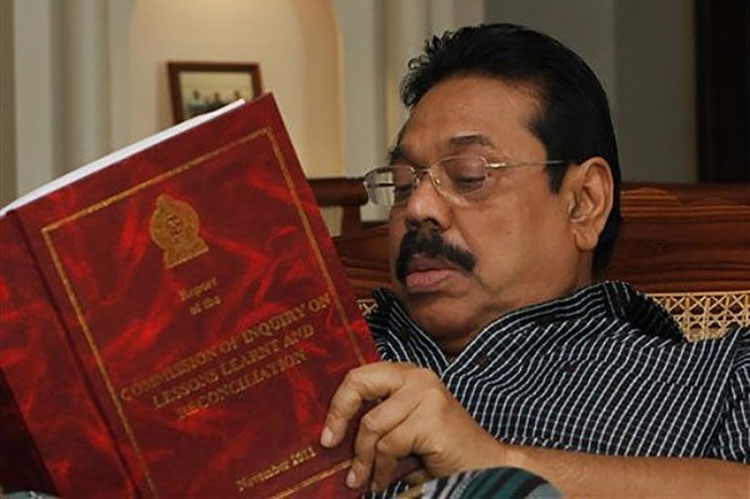
A political commentator has attributed the UK sanctions against four individuals, three of whom were top ranking Army and Navy Officers associated with Sri Lanka’s armed conflict, to the failure of successive governments to address human rights allegations, which he describes as a self-inflicted crisis. The reason for such international action is the consistent failure of governments to conduct independent and credible inquiries into allegations of war crimes; no ‘effective investigative mechanism’ has been established to examine the conduct of either the Sri Lankan military or the LTTE.
He has not elaborated on what constitutes an “effective investigative mechanism. He has an obligation and responsibility to present the framework of such a mechanism. The hard reality however is that no country, not even South Africa, has crafted an effective investigative mechanism to address post conflict issues.
INVESTIGATIVE MECHANISMS
The hallmark of a credible investigative mechanism should be unravelling the TRUTH. No country has ventured to propose how such a Mechanism should be structured and what its mandate should be. Furthermore, despite the fact that no country has succeeded in setting up a credible truth-seeking mechanism, the incumbent government continues to be committed to explore “the contours of a strong truth and reconciliation framework” undaunted by the failed experiences of others, the most prominent being South Africa’s Truth and Reconciliation Commission.
South Africa’s Truth and Reconciliation Commission is often cited as the gold standard for post conflict Mechanisms. Consequently, most titles incorporate the word “Truth” notwithstanding the fact that establishing the “Truth” was a failure not only in South Africa but also in most countries that attempted such exercises.
Citing the South African experience, Prof. G. L. Peiris states: “pride of place was given to sincere truth-telling which would overcome hatred and the primordial instinct for revenge. The vehicle for this was amnesty…… Despite the personal intervention of Mandela, former State President P. W. Botha was adamant in his refusal to appear before the Commission, which he deemed as ‘a fierce unforgiving assault’ on Afrikaaners” (The Island, 01 April, 2025). In the case of Sri Lanka too, disclosures to find the “Truth” would be all about the other party to the conflict, thus making Truth seeking an accusatory process, instead of a commitment to finding the Truth. The reluctance to engage in frank disclosure is compounded by the fear of recrimination by those affected by the Truth.
Continuing Prof. Peiris cites experiences in other countries. “Argentina, the power to grant amnesty was withheld from the Commission. In Columbia, disclosure resulted not in total exoneration, but in mitigating sentences. In Chile, prosecutions were feasible only after a prolonged interval since the dismantling of Augusta Pinochet’s dictatorship ….” (Ibid).
The mechanisms adopted by the countries cited above reflect their own social and cultural values. Therefore, Sri Lanka too has to craft mechanisms in keeping with its own civilisational values of restorative and not retributive justice for true reconciliation, as declared by President J. R, Jayewardene in San Francisco as to what the global attitude should be towards Japan at the conclusion of World War II. Since the several Presidential Commissions appointed under governments already embody records of alleged violations committed, the information in these commission reports should be the foundation of the archival records on which the edifice of reconciliation should be built.
ESTABLISHING DUE CONTEXT
The suggestion that an independent and credible inquiry be conducted into allegations of war crimes reflects a skewed understanding of the actual context in which the armed conflict in Sri Lanka occurred. Even the UNHRC has acknowledged that the provisions of “Article 3 common to the four Geneva Conventions relating to conflicts not of an international character is applicable to the situation in Sri Lanka, as stated in para. 182 of the OISL Report by the UNHRC Office. Therefore, the correct context is International Humanitarian Law with appropriate derogations of Human Rights law during an officially declared Emergency as per the ICCPR.; a fact acknowledged in the OISL report.
Consequently, the armed conflict has to conform to provisions of Additional Protocol II of 1977, because “This Protocol, which develops and supplements Article 3 common to the Geneva Conventions is the due context. There is no provision for “alleged war crimes” in the Additional Protocol. Although Sri Lanka has not formally ratified Additional Protocol II, the Protocol is today accepted by the Community of Nations as Customary Law. On the other hand, “war crimes” are listed in the Rome Statute; a Statute that Sri Lanka has NOT ratified and not recognized as part of Customary Law.
Therefore, any “investigative mechanism” has to be conducted within the context cited above, which is Additional Protocol II of 1977.
SRI LANKAN EXPERIENCE
On the other hand, why would there be a need for Sri Lanka to engage in an independent and credible inquiry into allegations, considering the following comment in Paragraph 9.4 and other Paragraphs of the Lessons Learnt and Reconciliation Commission (LLRC)?
“In evaluating the Sri Lankan experience in the context of allegations of violations of IHL (International Humanitarian Law), the Commission is satisfied that the military strategy that was adopted to secure the LTTE held areas was one that was carefully conceived in which the protection of the civilian population was given the highest priority”
9.7 “Having reached the above conclusion, it is also incumbent on the Commission to consider the question, while there is no deliberate targeting of civilians by the Security Forces, whether the action of the Security Forces of returning fire into the NFZs was excessive in the context of the Principle of Proportionality…” (Ibid)
The single most significant factor that contributed to violations was the taking of Civilians in the N Fire Zone hostage (NFZ) by the LTTE. This deliberate act where distinction between civilian and combatant was deliberately abandoned, exposed and compromised the security of the Civilians. The consequences of this single act prevent addressing whether military responses were proportionate or excessive, or whether the impact of firing at make-shift hospitals were deliberate or not, and whether limiting humanitarian aid was intentional or not. These issues are recorded and addressed in the Presidential Commission Reports such as LLRC and Paranagama. This material should be treated as archival material on which to build an effective framework to foster reconciliation.
UK SANCTIONS
Sanctions imposed by the UK government as part of an election pledge for Human Rights violations during the armed conflict is a direct act of intervention according to Article 3 of the Additional Protocol of 1977 that is the acknowledged context in which actions should be judged.
Article 3 Non-intervention states:
1 “Nothing in the Protocol shall be invoked for the purpose of affecting the sovereignty of a State or the responsibility of the government by all legislative means, to maintain or re-establish law and order in the State or to defend the national unity and territorial integrity of the State”.
2 “Nothing in the Protocol shall be invoked as a justification for intervening directly or indirectly, for any reason whatsoever, in the armed conflict or in the internal or external affairs of the High Contracting Party in the territory on which the conflict occurs”.
Targeting specific individuals associated with the armed conflict in Sri Lanka is a direct assault of intervention in the internal affairs of Sri Lanka. The UK government should be ashamed for resorting to violating International Law for the sake of fulfilling an election pledge. If Sri Lanka had issued strictures on the UK government for not taking action against any military officers responsible for the Bloody Sunday massacre where 26 unarmed civilians participating in a protest march were shot in broad daylight, Sri Lanka would, in fact be intervening in UK’s internal affairs.
CONCLUSION
The UK’s action reflects the common practice of making election pledges to garner targeted votes of ethnic diasporas. The influence of ethnic diasporas affecting the conduct of mainstream politics is becoming increasingly visible, the most recent being the Tamil Genocide Education Week Act of Ontario that was dismissed by the Supreme Court of Canada on grounds the Provincial Legislations have no jurisdiction over Federal and International Laws.
However, what should not be overlooked is that the armed conflict occurred under provisions of common Article 3 of the Geneva Conventions. This Article is developed and supplemented by Additional Protocol II of 1977. Therefore, since all Geneva Conventions are recognised as Customary Law, so should the Additional Protocol II be, because it is a development of common Article 3.
Imposing sanctions under provisions of Additional Protocol II amounts to Intervention in internal affairs of a State as stated in Article 3 of the Protocol; II cited above. Such interventions are prohibited under provisions of international law.
The need to revive independent and credible inquiries after the lapse of 16 years is unrealistic because those who were perpetrators and victims alike cannot be identified and/or located. Furthermore, the cost of disclosure because of the possibility of retribution would compromise their security. A realistic approach is to use the material recorded in the Presidential Commission Reports and treat them as archival records and use the lessons learnt from them to forge a workable framework that would foster unity and reconciliation with the survivors in all communities This is not to live in the past but to live in the here and now – the present, which incidentally, is the bedrock of Sri Lanka’s civilisational values.
by Neville Ladduwahetty
Features
The Silent Invasion: Unchecked spread of oil palm in Sri Lanka
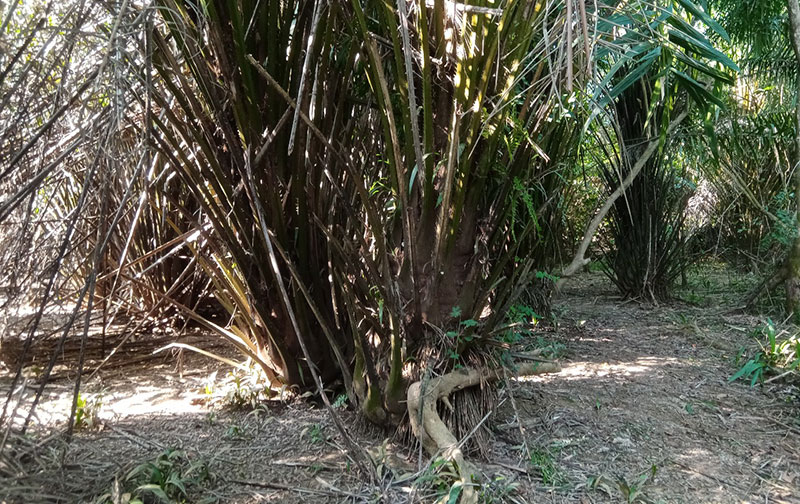
Sri Lanka’s agricultural landscape is witnessing a silent yet profound transformation with the rapid expansion of oil palm plantations. Once introduced as a commercial crop, the oil palm (Elaeis guineensis) is now at the center of a heated debate, with environmentalists and scientists warning of its devastating ecological consequences.
Speaking to The Island research scientist Rajika Gamage, said: “The spread of oil palm in Sri Lanka is not just a concern for biodiversity, but also for water resources, soil stability, and even local economies that rely on traditional crops.”
A Brief History of Oil Palm Cultivation
Oil palm, originally from West and Central Africa, was first cultivated for commercial purposes in Java in 1948 by Dutch colonists. It reached Malaysia and Indonesia by 1910, where its lucrative potential drove large-scale plantations.
According to Gamage, in Sri Lanka, the first significant oil palm plantation was established in 1968 at Nakiyadeniya Estate by European planters, initially covering a mere 0.5 hectares. Today, oil palm cultivation is predominantly concentrated in Galle, Matara, and Kalutara districts, with smaller plantations in Colombo, Rathnapura, and Kegalle.
Over the decades, he says the commercial viability of oil palm has prompted its expansion, often at the cost of native forests and traditional agricultural lands. Government incentives and private investments have further accelerated the spread of plantations, despite growing concerns over their environmental and social impacts.
Economic Boon or Environmental Curse?
Supporters of oil palm industry argue that it is the most efficient crop for vegetable oil production, yielding more oil per hectare than any other alternative. Sri Lanka currently imports a significant amount of palm oil, and expanding local production is seen as a way to reduce dependence on imports and boost local industries. However, Gamage highlights the hidden costs: “Oil palm plantations deplete water sources, contribute to soil erosion, and threaten native flora and fauna. These are long-term damages that far outweigh the short-term economic benefits.”
One of the primary environmental concerns is the aggressive water consumption of oil palm, which leads to the depletion of underground aquifers. This is particularly evident in areas such as Kalu River and Kelani River wetlands, where native ecosystems are being severely affected. Additionally, soil degradation caused by extensive monoculture farming results in loss of fertility and increased vulnerability to landslides in hilly regions.
Furthermore, studies show that oil palm plantations disrupt the natural habitats of endemic species. “Unlike rubber and coconut, oil palm does not support Sri Lanka’s rich biodiversity. It alters the soil composition and prevents the regeneration of native plant species,” Gamage explains. The loss of forest cover also exacerbates human-wildlife conflicts, as displaced animals venture into human settlements in search of food and shelter.
A Threat to Indigenous Agriculture and Culture
Beyond environmental concerns, oil palm is also threatening traditional crops like kitul (Caryota urens) and palmyrah (Borassus flabellifer), both of which hold economic and cultural significance. “These native palms have sustained rural livelihoods for centuries,” says Gamage. “Their gradual replacement by oil palm could lead to economic instability for small-scale farmers.”
Kitul tapping, an age-old tradition in Sri Lanka, provides a source of income for thousands of families, particularly in rural areas. The syrup extracted from kitul is used in local cuisine and traditional medicine. Similarly, palmyrah has deep roots in Sri Lankan culture, particularly in the Northern and Eastern provinces, where its products contribute to food security and local industries.
The rise of oil palm plantations has led to the clearing of lands that once supported the traditional crops. With large-scale commercial investments driving oil palm expansion, small-scale farmers are finding it increasingly difficult to sustain their livelihoods. Gamage warns, “If we allow oil palm to replace our native palms, we risk losing not just biodiversity, but also a vital part of our cultural heritage.”
The Global Perspective: Lessons from Other Nations
Sri Lanka is not the first country to grapple with the consequences of oil palm expansion. Malaysia and Indonesia, the world’s leading producers of palm oil, have faced severe deforestation, biodiversity loss, and socio-economic conflicts due to unchecked plantation growth.
In Indonesia, for example, vast tracts of rainforest have been cleared for palm oil production, leading to habitat destruction for endangered species such as orangutans and Sumatran tigers. Additionally, indigenous communities have been displaced, sparking legal battles over land rights.
Malaysia has attempted to address some of these issues by introducing sustainability certifications, such as the Malaysian Sustainable Palm Oil (MSPO) standard. However, implementation challenges remain, and deforestation continues at an alarming rate.
Sri Lanka can learn valuable lessons from these experiences. Implementing strict land-use policies, promoting agroforestry practices, and ensuring transparency in plantation expansion are crucial steps in mitigating environmental damage while supporting economic development.
The Urgent Need for Action
Despite these concerns, Sri Lanka has yet to enforce strict regulations on oil palm expansion. Gamage urges authorities to intervene: “It is imperative that we implement policies to control its spread before it is too late. The unchecked expansion of oil palm will lead to irreversible environmental damage.”
To address this issue, experts suggest a multi-pronged approach:
Stronger Land-Use Policies
– The government must enforce restrictions on oil palm cultivation in ecologically sensitive areas, such as wetlands and forest reserves.
Reforestation and Rehabilitation
– Efforts should be made to restore degraded lands by reintroducing native tree species and promoting sustainable agroforestry.
Supporting Traditional Agriculture
– Incentives should be provided to farmers growing traditional crops like kitul and palmyrah, ensuring that these industries remain viable.
Public Awareness and Education
– Raising awareness among local communities about the environmental and social impacts of oil palm can empower them to make informed decisions about land use.
Sustainable Alternatives
– Encouraging research into alternative vegetable oil sources, such as coconut oil, which has long been a staple in Sri Lankan agriculture, could reduce reliance on palm oil.
As Sri Lanka stands at a crossroads, the decisions made today will determine the country’s ecological and agricultural future. While the economic benefits of oil palm are undeniable, its long-term environmental and social costs cannot be ignored. The challenge now is to strike a balance between economic growth and environmental sustainability before the damage becomes irreversible.
In conclusion Gamage said, “We must act now. If we allow oil palm to spread unchecked, future generations will bear the cost of our inaction.”
Sri Lanka has the opportunity to take a different path—one that prioritises biodiversity conservation, sustainable agriculture, and the well-being of local communities. The time for decisive action is now.
By Ifham Nizam
Features
A plea for establishing a transboundary Blue-Green Biosphere Reserve in Gulf of Mannar and Palk Bay
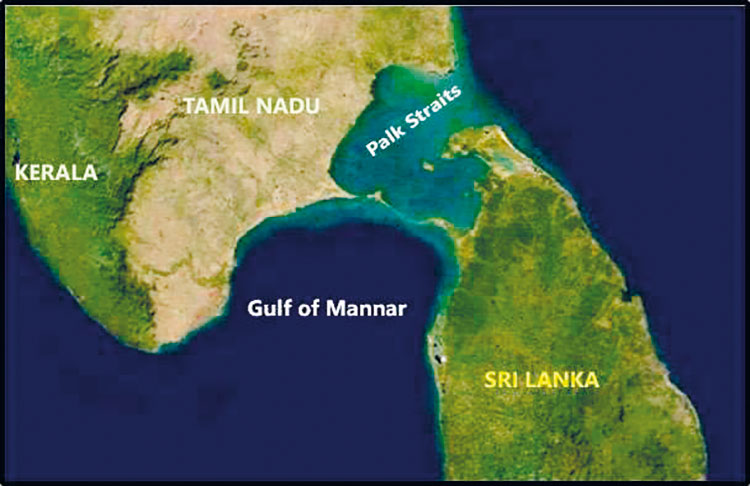
Blue-green land and waterscapes act as ecological corridors across land and water in creating an ecological continuity in order to protect and restore the habitats of native and naturalised species.
In addition, these ecological corridors also help to conserve and improve the habitats of migratory species, as well. One of the main objectives of establishing blue-green land-waterscapes is to reconcile increasing local/regional development and human livelihood challenges in a sustainable manner while, at the same time, safeguard biodiversity and their habitats/ecosystems, as far as possible.
While green landscapes are natural and semi-natural terrestrial vegetation types like natural forests and grasslands, blue waterscapes are aquatic or semi-aquatic vegetation types such as seagrass meadows, mangroves and coastal and other wetlands. These vegetated coastal ecosystems known as ‘blue carbon’ ecosystems are some of the most productive on Earth and located at the interfaces among terrestrial, freshwater and marine environments. They provide us with essential ecosystem services, such as serving as a buffer in coastal protection from storms and erosion, spawning grounds for fish, filtering pollutants and contaminants from coastal waters thus improving coastal water quality and contributing to all important food security.
In addition, they capture and store “blue” carbon from the atmosphere and oceans at significantly higher rates per unit area than tropical forests (Figure 1) and hence act as effective carbon sinks. By storing carbon, these ecosystems help to reduce the amount of greenhouse gas in the atmosphere, thus contributing significantly to mitigate the effects of climate change.

Figure 1: Carbon storage in different vegetation types (Source – What Is Blue Carbon and Why Does It Matter? – Sustainable Travel International)
.Blue-green Carbon Markets
The recognition of blue carbon (BC) ecosystems (primarily mangroves, seagrasses and tidal marshes) as an effective natural climate solution paved the way for their inclusion within carbon markets. Blue carbon is the marine analog of green carbon, which refers to carbon captured by terrestrial (i.e., land-based) plants. The blue-green carbon market involves buying and selling carbon credits from projects that protect and restore coastal and marine ecosystems (blue carbon) and terrestrial ecosystems (green carbon). Since Blue Carbon ecosystems have higher carbon sequestration (capture and store) potential compared to their terrestrial counterparts, blue Carbon credits are worth over two times more than green carbon credits. They offer opportunities for commercial enterprises to offset carbon emissions and in turn support climate action.
Blue Carbon projects are expected to grow twofold in the near future. With the recent surge in international partnerships and funding, there is immense growth potential for the blue carbon market. However, it is critically important to look beyond the value of the carbon sequestered to ensure the rights and needs of local communities that are central to any attempt to mitigate climate change using a blue and green carbon project.
Blue Carbon projects can serve as grassroot hubs for sustainable development by developing nature-based solutions in these ecosystems thus contributing to both climate change mitigation and adaptation. Globally, numerous policies, coastal management strategies, and tools designed for conserving and restoring coastal ecosystems have been developed and implemented. Policies and finance mechanisms being developed for climate change mitigation may offer an additional route for effective coastal management. The International Blue Carbon Initiative, for example, is a coordinated, global program focused on conserving and restoring coastal ecosystems for the climate, biodiversity and human wellbeing.
Until recently, most of these opportunities focus on carbon found in the above ground vegetative biomass and do not account for the carbon in the soil. On the other hand, blue carbon, in particular has the potential for immense growth in carbon capture economics in the near future and can provide significant socioeconomic and environmental benefits. Consequently, blue -green carbon habitats in the Gulf of Mannar – Palk Bay region represent invaluable assets in climate change mitigation and coastal ecosystem conservation and sustainable development.
Gulf of Mannar and Palk Bay Trans-boundary Region
The Gulf of Mannar and Palk Bay region form a transboundary area within the waters of southeastern India and northwestern Sri Lanka. This region supports dense seagrass meadows having a high level of marine biodiversity including marine mammals such as dugong. Sea turtles are frequent visitors to the gulf while sharks, dolphins, sperm and baleen whales too, have been reported from this area. The Mannar region is recognized as an Important Marine Mammal Area (IMMA) of the world by IUCN (Figure 2) and also an Important Bird Area by Birdlife International. This region as a whole is a store house of unique biological wealth of global significance and as such is considered as one of the world’s richest regions from a marine biodiversity perspective.
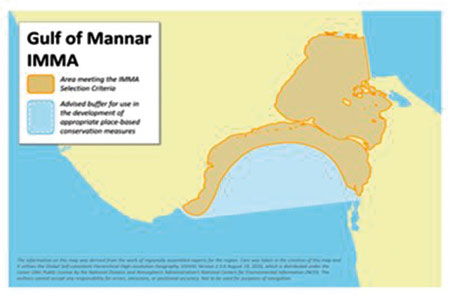
Figure 2. Gulf of Mannar and Palk Bay IMMA (Source – IUCN Joint SSC/WCPA Marine Mammal Protected Areas Task Force, 2022 IUCN-MMPATF (2022)
Gulf of Mannar Biosphere Reserve – India
India has already declared a part of this region as the UNESCO Gulf of Mannar Biosphere Reserve covering an area of 10,500 km2 of ocean with 21 islands and the adjoining coastline. The islets and coastal buffer zone include beaches, estuaries, and tropical dry broadleaf forests, while the surrounding seascape of the Marine National Park (established in 1986) and a 10 km strip of the coastal landscape that include seaweed communities, seagrass communities, coral reefs, salt marshes and mangrove forests form the coastal and marine component of the biosphere reserve on the Indian side of the Gulf of Mannar.
Sri Lankan ‘Proposed’ Biosphere Reserve
On the Sri Lankan side of the Palk Bay there is a semi-enclosed shallow water body between the southeast coast of India and Sri Lanka, with a water depth maximum of 13 m. To the south, a chain of low islands and reefs known as Adam’s Bridge or Rama Setu (Rama’s Bridge), separates Palk Bay from the Gulf of Mannar. The Palk Bay leads to Palk Strait (Figure 3). Palk Bay is one of the major sinks for sediments along with the Gulf of Mannar. Sediments discharged by rivers and transported by the surf currents as littoral drift settle in this sink.
On the Sri Lankan side of the Palk Bay, studies are being conducted by the Dugong and Seagrass Conservation Project to establish an additional 10,000 hectares of Marine Protected Area to support the conservation of dugongs and their seagrass habitat in the Gulf of Mannar and Palk Bay. This project will involve the preparation of a multiple-community-based management plan in conjunction with government, fishing communities and the tourism industry.
With this valuable information emerging from projects of this nature, Sri Lanka has real opportunities to create a large marine protected area in the Gulf of Mannar and Palk Bay region and eventually merging them together with the Gulf of Mannar Biosphere Reserve of India to form a trans-boundary biosphere Reserve.
Terrestrial cum Marine Spatial Plan for the Gulf of Mannar and Palk Bay Region
Therefore, an excellent opportunity awaits both the Governments of Sri Lanka and India to collaborate in preparing of a terrestrial and marine spatial plan for this region, a prerequisite before going further on designing and implementing large scale development plans in establishing wind energy farms, mineral sand extraction, fishing industry, oil exploration and tourism development.
Coastal and Marine Spatial Planning (CMSP) is an integrated, place-based approach for allocating coastal and marine resources and space, while protecting the ecosystems that provide these vital resources.
On the Indian side, the Gulf of Mannar Biosphere reserve is well established and functional. On the Sri Lankan side, already there are three DWLC managed protected areas i) Adam’s Bridge Marine National Park (# 29 in the map – 18,990 ha declared in 2015), ii) Vedithalathiv Nature Reserve (# 35 -29,180 ha declared in 2016) and iii) Vankalai Sanctuary ( # 97 -4839 ha declared in 2008) (Figure 4) which can serve as the core zone of the Sri Lankan counterpart of a trans-boundary biosphere reserve. Due to the integrated nature of shallow wetland and terrestrial coastal habitats, Vankalai Sanctuary, in particular is highly productive, supporting high ecosystem and species diversity.
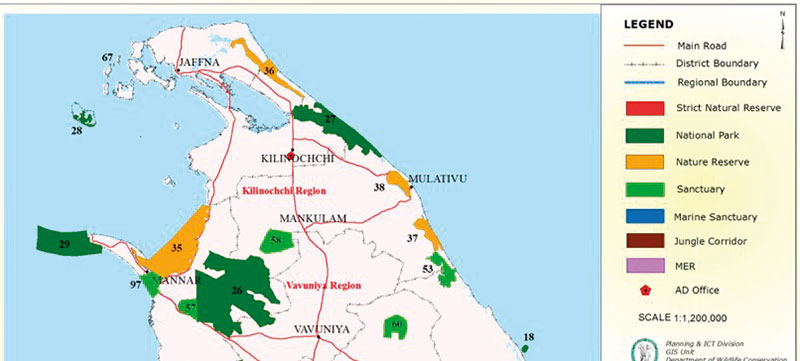
Figure 4: Protected Areas in Norther Sri Lanka Managed by the Department of Wildlife Conservation Source: DWLC
This site provides excellent feeding and living habitats for a large number of water bird species, including annual migrants, which also use this area on arrival and during their exit from Sri Lanka.
Having several coastal and marine protected areas already within the Sri Lankan territory provide an excellent opportunity to establish the Gulf of Mannar – Palk Bay blue-green Biosphere Reserve (Sri Lanka) initially and eventually to join up seamlessly with the already established Gulf of Mannar Biosphere Reserve on the Indian side to create a trans-boundary blue-green biosphere reserve.
This makes perfect sense because unlike sedentary plant species, mobile animal and plant groups (phytoplankton, in particular) do not respect human demarcated territorial boundaries. The provision of a common and unhindered protected coastal and marine passage for their customary movement for food and raising young is therefore of crucial importance in conservation management. Scientific evidence-based selection of additional areas, if necessary and their respective boundaries are best be determined in consultation with expert groups on marine mammals and reptiles, birds, fish, coastal vegetation conservation, sociology and industrial development from both sides of the divide.
Proper spatial planning needs to be done before large-scale development plans are designed and implemented in order to avoid conflicts of interest leading to inordinate delays and teething problems in project initiation. As a priority, the protected blue-green core and buffer regions need to be demarcated for their conservation. This could best be done in this narrow passage of land and water between Sri Lanka and India
( Palk Strait & Gulf of Mannar) by preparing a marine and terrestrial spatial plan along the UNESCO Man and Biosphere conceptual guidelines differentiating core, buffer and transition zones. While the protected areas in the core and buffer zone provide all important ecosystem services that would also serve as breeding ground for fish, crustaceans, marine reptiles, birds and mammals thereby provisioning sustainable industries to be developed in the surrounding transition areas demarcated in the joint spatial plan.
In addition, the Satoyama Global Initiative established by the Japanese at UNESCO as a global effort in 2009 to realise ‘societies in harmony with nature’ in which – Satoumi – specifically referring to the management of socio-ecological production landscapes in marine and coastal regions, is also a good model to be considered for conservation of biodiversity and co-existence between humans and nature.
Final Plea
In order to take this proposal forward from the Sri Lankan side, a number of useful baseline reports are already available including, but not limited to, the following: i. Biodiversity Profile of the Mannar District (CEJ & USAID 2022), ii. The Gulf of Mannar and its surroundings (IUCN 2012), iii) Atlas of Mangroves, Salt Marshes and Sand Dunes of the Coastal Area from Malwathu Oya to Pooneryn in the Northwestern Coastal Region, Sri Lanka (Ecological Association of Sri Lanka, Peradeniya, Sri Lanka, 2020). iv. Integrated Strategic Environment Assessment of the Northern Province of Sri Lanka (CEA 2014).
If this proposal to establish a Trans-boundary Blue-Green Biosphere Reserve in the Gulf of Mannar and Palk Bay is acceptable in principle to the Governments of Sri Lanka and India, it would be ideal if the Man and the Biosphere (MAB) program UNESCO which is an intergovernmental scientific program whose mission is to establish a scientific basis for enhancing the relationship between people and their environments to partner with the relevant Government and non-governmental agencies in both countries in making it a reality. This proposed concept has all the necessary elements for developing a unique sustainable conservation cum industrial development strategy via nature-based solutions while at the same time contributing to both climate change mitigation and adaptation.
by Emeritus Professor Nimal Gunatilleke,
University of Peradeniya
-

 News5 days ago
News5 days agoBid to include genocide allegation against Sri Lanka in Canada’s school curriculum thwarted
-

 Sports6 days ago
Sports6 days agoSri Lanka’s eternal search for the elusive all-rounder
-

 News7 days ago
News7 days agoGnanasara Thera urged to reveal masterminds behind Easter Sunday terror attacks
-

 Sports2 days ago
Sports2 days agoTo play or not to play is Richmond’s decision
-

 News6 days ago
News6 days agoComBank crowned Global Finance Best SME Bank in Sri Lanka for 3rd successive year
-

 Features6 days ago
Features6 days agoSanctions by The Unpunished
-

 Features6 days ago
Features6 days agoMore parliamentary giants I was privileged to know
-

 Latest News4 days ago
Latest News4 days agoIPL 2025: Rookies Ashwani and Rickelton lead Mumbai Indians to first win


